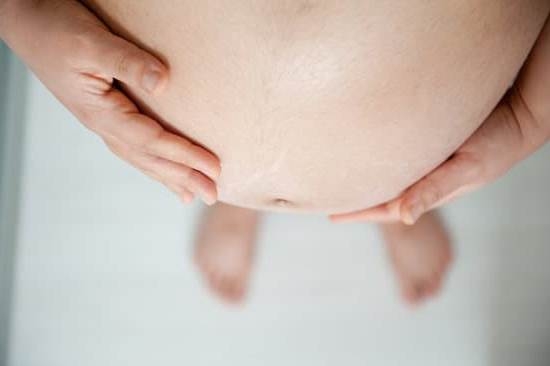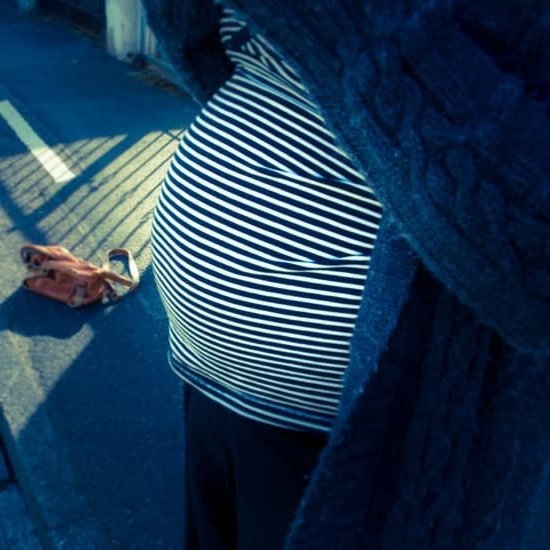A tubal pregnancy, also known as an ectopic pregnancy, occurs when a fertilized egg implants and grows outside the uterus, usually in a fallopian tube. This can lead to serious complications for the pregnant woman and requires immediate medical attention. In this section, we will delve into what exactly a tubal pregnancy is, how it happens, and the potential risks associated with it.
The journey to understanding tubal pregnancy begins with grasping the normal process of conception and implantation. Once the egg is fertilized by sperm, it typically travels through the fallopian tube to reach the uterus where it implants and grows into a fetus. However, in cases of tubal pregnancy, this process goes awry as the fertilized egg gets stuck in the fallopian tube or other non-uterine location. This abnormal implantation can cause serious health risks for women if left untreated.
We will explore in detail how various factors such as previous tubal surgeries or infections can increase the risk of tubal pregnancies, as well as what steps can be taken to prevent them from occurring. Additionally, we will discuss the importance of early detection and treatment in minimizing potential harm to both mother and fetus. Understanding these key aspects is crucial for women’s reproductive health and overall well-being.
Signs and Symptoms of Tubal Pregnancy
When it comes to tubal pregnancy, understanding the signs and symptoms is crucial for early detection and treatment. Also known as ectopic pregnancy, a tubal pregnancy occurs when a fertilized egg implants itself outside the uterus, commonly within the fallopian tube. This can result in serious complications if left untreated, making it important for women to be aware of the signs and symptoms to look out for.
One of the most common symptoms of tubal pregnancy is abdominal pain or pelvic pain that may be sharp or cramp-like. This pain may be localized on one side of the abdomen and can range from mild to severe. In some cases, women may also experience shoulder tip pain due to internal bleeding from a ruptured fallopian tube.
Other signs and symptoms of tubal pregnancy include abnormal vaginal bleeding, dizziness or fainting, rectal pressure, and shoulder pain. It’s important for women to be aware of these symptoms and seek medical attention if they experience any of them, especially if they have a history of infertility, pelvic inflammatory disease, or previous tubal pregnancies. Early diagnosis and intervention are essential for preventing serious complications associated with tubal pregnancy.
| Signs and Symptoms | Description |
|---|---|
| Abdominal or pelvic pain | May be sharp or cramp-like, localized on one side |
| Vaginal bleeding | Abnormal bleeding that is different from normal menstruation |
| Dizziness or fainting | Can indicate internal bleeding from a ruptured fallopian tube |
Diagnosis and Treatment Options for Tubal Pregnancy
When it comes to diagnosing and treating tubal pregnancy, early detection is key. Here are some important steps to take if you suspect a tubal pregnancy:
1. Seek Medical Attention: If you experience symptoms such as abdominal pain, vaginal bleeding, or shoulder pain, it’s crucial to seek medical attention immediately. Your doctor will likely perform a pelvic exam and may recommend further tests such as an ultrasound or blood tests to confirm the diagnosis of a tubal pregnancy.
2. Treatment Options: Once diagnosed, the treatment options for tubal pregnancy typically involve either medication or surgery. Medication may be used to stop the growth of the embryo and allow the body to reabsorb the pregnancy tissue.
In cases where the fallopian tube has not ruptured and the patient’s condition is stable, this approach may be considered. However, if there is a risk of rupture or excessive bleeding, surgery may be necessary to remove the ectopic pregnancy and repair any damage to the fallopian tube.
3. Emotional Support: Dealing with a diagnosis of tubal pregnancy can be emotionally challenging for many women. It’s important to seek emotional support from loved ones or join support groups where you can connect with others who have gone through similar experiences.
It’s important to remember that every woman’s experience with tubal pregnancy is unique, and it’s essential to work closely with your healthcare provider to determine the best course of action for your individual situation. With prompt diagnosis and appropriate treatment, many women are able to recover fully from a tubal pregnancy and go on to have successful future pregnancies.
Potential Risks and Complications of Tubal Pregnancy
Tubal pregnancy, also known as an ectopic pregnancy, occurs when a fertilized egg implants and grows outside the uterus, often in the fallopian tube. This can result in potential risks and complications for the woman experiencing this type of pregnancy. One of the most serious risks is a ruptured fallopian tube, which can cause severe internal bleeding and requires immediate medical attention. If not treated promptly, it can be life-threatening.
Other potential complications of tubal pregnancy include damage to the fallopian tubes, which can lead to future fertility issues. Scar tissue may form as a result of the pregnancy being located in the fallopian tube, increasing the risk of future ectopic pregnancies. Additionally, women who have experienced a tubal pregnancy may also be at higher risk for pelvic inflammatory disease (PID), a serious infection of the female reproductive organs.
It’s important for women who have had a tubal pregnancy to be aware of these potential risks and complications and to seek medical care if they experience symptoms such as severe abdominal pain, dizziness, or fainting. Early detection and treatment are crucial in preventing serious health consequences from occurring as a result of a tubal pregnancy.
| Potential Risks | Complications |
|---|---|
| Ruptured fallopian tube | Severe internal bleeding |
| Damaged fallopian tubes | Future fertility issues |
| Scar tissue formation | Risk of future ectopic pregnancies |
Emotional and Mental Health Considerations for Women With Tubal Pregnancy
Dealing with a tubal pregnancy can take an emotional and mental toll on women, as it involves not only the physical challenges but also the psychological impact of losing a pregnancy. It is important for women to understand and acknowledge their feelings during this difficult time, and to seek the necessary support and resources to help them cope.
Here are some emotional and mental health considerations for women with tubal pregnancy:
1. Grief and Loss: A tubal pregnancy often results in loss of a wanted pregnancy, which can lead to feelings of grief and sadness. It is important for women to give themselves permission to grieve and process their emotions in a healthy way. Seeking counseling or joining a support group can provide a safe space for women to express their feelings and find comfort in sharing their experiences with others who have gone through similar situations.
2. Anxiety and Fear: Women who have experienced a tubal pregnancy may feel anxious or fearful about future pregnancies. The fear of another tubal pregnancy or the possibility of difficulties conceiving again can be overwhelming. Seeking professional counseling or therapy can help women manage their anxiety and fears, as well as develop coping strategies to navigate these emotions.
3. Self-Care and Support: Taking care of one’s emotional well-being is crucial after experiencing a tubal pregnancy. Engaging in self-care activities such as exercise, meditation, or creative outlets can help with managing stress and promoting overall mental health. Additionally, seeking support from friends, family, or online communities specifically for women who have gone through tubal pregnancies can provide valuable emotional support.
By addressing the emotional and mental health considerations associated with tubal pregnancies, women can better navigate the challenges they may face during this difficult time while working towards healing and recovery. Remember that seeking professional help when needed is always an option for those struggling with their mental health post-tubal-pregnancy experience.
Recovery and Aftercare for Women After Tubal Pregnancy
Rest and Physical Recovery
After experiencing a tubal pregnancy, it is important for women to prioritize their physical health and allow themselves time to rest and recover. Surgery or medical treatment for a tubal pregnancy can take a toll on the body, so it is crucial for women to listen to their healthcare provider’s recommendations regarding physical activity, lifting restrictions, and resuming normal daily activities.
It is common for women to experience some discomfort and pain following treatment for a tubal pregnancy, so it is essential to give the body the time it needs to heal.
Emotional Healing
In addition to physical recovery, emotional healing is also an important aspect of aftercare for women who have experienced a tubal pregnancy. Dealing with the loss of a pregnancy and facing the potential impact on future fertility can be emotionally challenging.
It is important for women to seek support from loved ones, counseling services, or support groups that specifically cater to individuals who have gone through similar experiences. Processing feelings of grief, sadness, anger, guilt, or confusion in a healthy manner can aid in the overall healing process.
Follow-Up Care and Monitoring
After receiving treatment for a tubal pregnancy, ongoing follow-up care with healthcare providers is crucial. This may include regular check-ups or blood tests to monitor hormone levels. Additionally, it is important for women to discuss future fertility goals with their healthcare team and understand any potential risks or implications for future pregnancies. Open communication with healthcare professionals can provide reassurance and guidance as women navigate their physical and emotional recovery after experiencing a tubal pregnancy.
Future Fertility and Pregnancy After Tubal Pregnancy
Understanding the Impact on Future Fertility
For many women who have experienced a tubal pregnancy, concerns about future fertility and the ability to have a successful pregnancy may arise. It is important to understand that the impact of a tubal pregnancy on future fertility varies from case to case. The extent of damage done to the fallopian tubes during the tubal pregnancy, as well as any treatment received, can all play a role in determining future fertility.
Potential Options for Conception
After experiencing a tubal pregnancy, some women may wonder about their options for conceiving in the future. Depending on the severity of damage to the fallopian tubes, some women may still be able to conceive naturally. Others may require assisted reproductive technologies such as in vitro fertilization (IVF) or possibly surgery to repair or bypass damaged fallopian tubes.
Emotional Considerations
The emotional impact of a tubal pregnancy can also affect decisions about future fertility and pregnancy. Many women may experience anxiety, grief, and fear regarding the possibility of another tubal pregnancy or infertility. Seeking support from mental health professionals or support groups can be beneficial in processing these emotions and making decisions about future family planning.
It’s important for women who have experienced a tubal pregnancy to consult with their healthcare provider to discuss their individual situation and potential options for future fertility and pregnancy. Each woman’s journey is unique, and with proper medical guidance and emotional support, many women are able to successfully conceive and carry a healthy pregnancy after experiencing a tubal pregnancy.
Support Resources and Communities for Women Dealing With Tubal Pregnancy
In conclusion, a tubal pregnancy can be a difficult and traumatic experience for women. It is important for women dealing with this condition to know that they are not alone and that there are resources and communities available to provide support. From online forums and support groups to counseling services and mental health professionals, there are various options for women to seek help in coping with the emotional and mental impact of a tubal pregnancy.
Additionally, it is crucial for women who have experienced a tubal pregnancy to prioritize their physical recovery and aftercare. This may involve follow-up appointments with healthcare providers, as well as taking time to rest and heal both physically and emotionally. It is also important for women to discuss future fertility and pregnancy plans with their medical team, as they may have concerns or questions about conceiving again after experiencing a tubal pregnancy.
Finally, seeking out support resources and communities can provide women with the opportunity to connect with others who have had similar experiences. Sharing stories, finding understanding, and receiving empathy from others who have been through the same challenges can make a significant difference in the healing process. Women do not need to go through this journey alone, and reaching out for support can be an important step towards finding comfort and healing after a tubal pregnancy.
Frequently Asked Questions
Has a Tubal Pregnancy Ever Survived?
The chances of a tubal pregnancy surviving are extremely rare. In most cases, the pregnancy needs to be terminated to prevent life-threatening complications for the mother.
Can a Woman Survive an Ectopic Pregnancy?
It is possible for a woman to survive an ectopic pregnancy, especially if it is diagnosed early and treated promptly. However, without medical intervention, an ectopic pregnancy can lead to serious complications and even death.
How Will I Know if I’m Having an Ectopic Pregnancy?
Some common signs of an ectopic pregnancy include abdominal or pelvic pain, vaginal bleeding, shoulder pain, and dizziness or weakness. If you experience these symptoms, it’s important to seek medical attention immediately for proper diagnosis and treatment.

Welcome to my fertility blog. This is a space where I will be sharing my experiences as I navigate through the world of fertility treatments, as well as provide information and resources about fertility and pregnancy.





